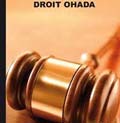 L'assainissement de la fonction arbitrale (obligation d'indépendance et d'impartialité) consacré par les articles 6 et 7 de l'Acte Uniforme OHADA sur le droit de l'arbitrage est l'un des aspects attractifs du système juridique et judiciaire de l'OHADA en Afrique.
L'assainissement de la fonction arbitrale (obligation d'indépendance et d'impartialité) consacré par les articles 6 et 7 de l'Acte Uniforme OHADA sur le droit de l'arbitrage est l'un des aspects attractifs du système juridique et judiciaire de l'OHADA en Afrique.
En effet, la sanction de la violation des devoirs d'indépendance et de l'impartialité des arbitres et d'autres règles éthiques dans les contentieux d'affaires réglés sous l'empire du droit de l'OHADA est une réalité strictement garantie par la Cour Commune de Justice et d'Arbitrage de l'OHADA.
En droit comparé de l'arbitrage, cette exigence consacrée par le législateur communautaire en 1999 connaît un regain de vitalité et d'intérêt depuis un temps (en droit français, voir Civ. 1re, 20 oct. 2010, 2 arrêts, D. 2010. Pan. 2933, obs. Clay ; ibid. Actu. 2589, obs. X. Delpech ; JCP 2010. 1286, obs. Seraglini ; ibid. 1306, obs. Le Bars et Juvénal ; LPA 21 févr. 2011, p. 17, note Henry ; Dr. et proc. 2011. 17, note Asfar Cazenave ; RJ com. 2011. 80, note Moreau ; V. égal., dans l'affaire Tecnimont, Civ. 1re, 4 nov. 2010, D. 2010. Pan. 2933, obs. T. Clay ; LPA 2011, n° 36, p. 17 note Henry et, sur renvoi, V. Reims, 2 nov. 2011, RG 10/02888, Cah. Arbitrage 2011. 1109, note T. Clay ; voir également les lignes directrices de l'IBA sur les conflits d'intérêts dans l'arbitrage international, approuvées le 22 mai 2004 par le Conseil de l'International Bar Association). Cette volonté du législateur OHADA d'assainir la fonction de l'arbitre a été légitimée par l'article 12 alinéa 1 du Règlement CNUDCI dans sa version révisée en 2010.
Dans un attendu pédagogiquement bien ciselé, la Cour de cassation française rappelle dans son Arrêt du 1er février 2012 que l'arbitre doit (c'est donc une obligation et non une faculté), « avant d'accepter sa mission, révéler toute circonstance susceptible d'être regardée comme affectant son impartialité afin de permettre à la partie d'exercer, à bref délai, s'il y a lieu, son droit de récusation ». Dans la logique de la jurisprudence Tecnimont du 2 novembre 2011 (voir newsletters des 15-12-2011, 29-11-2011, 18-11-2011, 13-11-2011 et 08-11-2011), la haute juridiction civile française vise ainsi à pointer du doigt une pratique qui nuit gravement à la crédibilité de l'arbitrage international : la pratique des « arbitres maison ». En effet, le fait qu'un arbitre soit régulièrement désigné par une partie crée entre elle et ce « juge privé » une sorte de « courant d'affaires » incompatible avec l'apparence d'impartialité et d'indépendance attendue de l'arbitre. En pareille circonstance, les intérêts personnels de l'arbitre et ceux de son cabinet d'avocats éventuel sont en opposition flagrante avec les devoirs d'indépendance et d'impartialité dont il a la charge.
Le contrôle juridictionnel est donc un levier essentiel pour la garantie du respect des devoirs de l'arbitre. C'est à ce titre que le système d'arbitrage de la Cour Commune de Justice et d'Arbitrage OHADA fait aujourd'hui figure de modèle. À un moment où la crédibilité d'autres systèmes internationaux d'arbitrage, notamment en Amérique du Nord, est gravement mise à mal par des conflits d'intérêts massifs, non révélés à l'origine et non sanctionnés par une récusation effective des arbitres concernés, ce modèle est particulièrement aux avant-postes des grandes orientations de la moralisation de la fonction arbitrale. En effet, tout le monde a à l'esprit un cas flagrant de conflit d'intérêt massif impliquant un arbitre associé d'un grand cabinet d'avocats canadien, qui défraye actuellement la chronique et suscite une grande émotion dans le monde, pourtant habituellement bien feutré, de l'arbitrage international. Au cas d'espèce, et malgré la gravité du conflit d'intérêt, l'institution d'arbitrage concernée avait refusé de récuser l'arbitre en question, ce dernier ayant ensuite démissionné sans pour autant officiellement reconnaître sa faute, et permettant ainsi à sa sentence intermédiaire viciée de continuer à avoir une apparence de légalité internationale, créant un préjudice supplémentaire à la partie lésée.
Il va en effet de soi que l'indépendance et l'impartialité des arbitres est un élément déterminant de la crédibilité de l'arbitrage et que tout manquement aux obligations de révélation des arbitres doit être sanctionné avec la plus grande sévérité par le système d'arbitrage concerné, en tout premier lieu. L'arbitrage OHADA apporte cette garantie juridictionnelle qui fait cruellement défaut à nombre de mécanismes privés d'arbitrage, notamment en Amérique du Nord.
Nous sommes à cet égard heureux de porter à votre connaissance l'arrêt rendu le 1er février 2012 par la Cour de cassation française statuant sur une question de l'impartialité apparente d'un arbitre et son importance lors de sa désignation. Nous joignons également un bref commentaire de cet arrêt.
Il ressort très clairement de cet arrêt qu'il appartient à l'arbitre de révéler toute circonstance susceptible d'être regardée comme affectant son impartialité afin de permettre à la partie d'exercer, à bref délai, s'il y a lieu, son droit de récusation.
Formons le vœu que les pratiques de l'arbitrage international, notamment aux États Unis et au Canada, prennent exemple sur le système d'arbitrage OHADA et s'inspirent aussi enfin ces principes de bon sens affirmés par l'Arrêt Tecnimont, puis l'Arrêt du 1er février 2012 de la Cour de Cassation française.
Joseph KAMGA
Président de l'Association pour l'Efficacité du Droit
et de la Justice dans l'espace de l'OHADA (AEDJ)
Courriel : joseph.kamga@aedj.fr
Publié le 14/02/2012, 14h39















